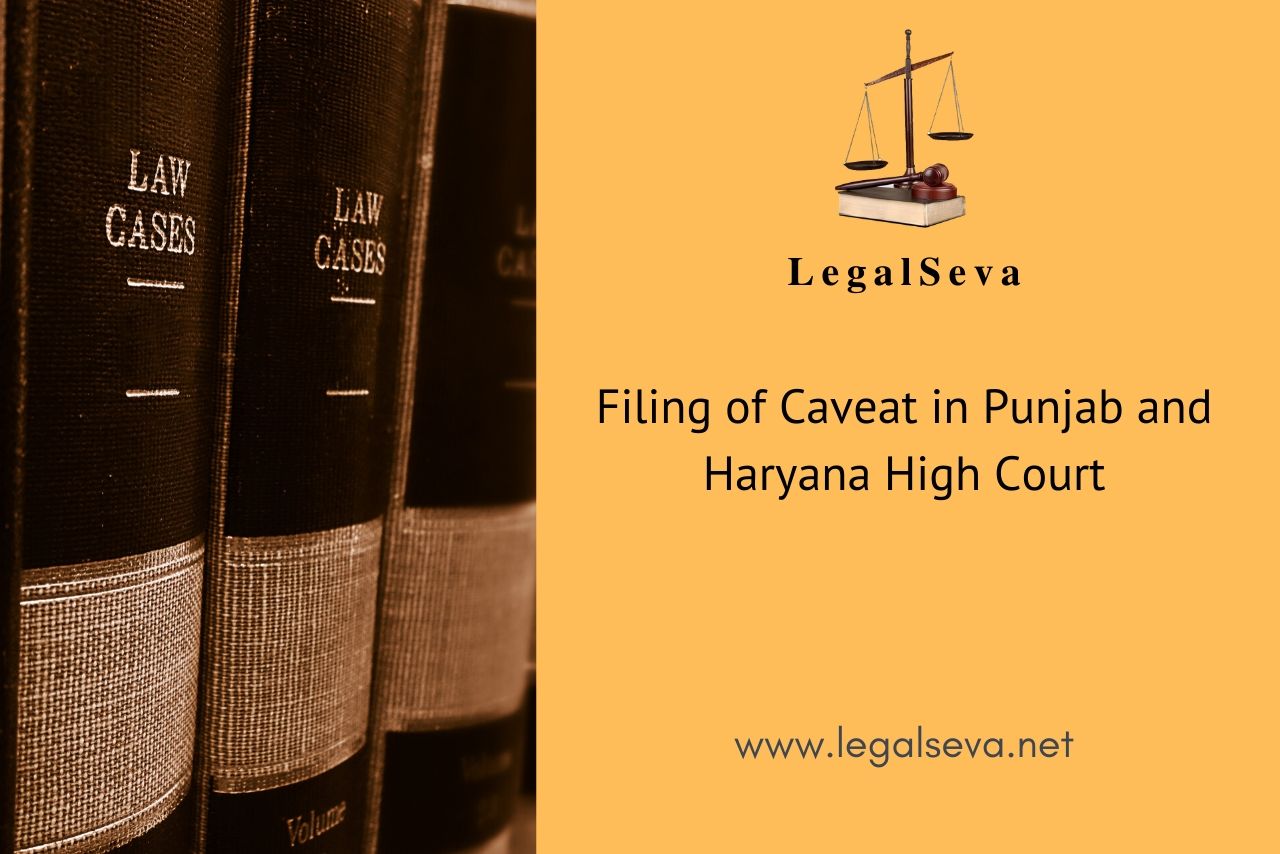Last Updated on June 16, 2024 by Satish Mishra
What is a Caveat?
A Caveat is a Latin term which means, ‘let a person beware’. It is a prior notice sent to a person who is presumed to be affected in any manner while an order is to be delivered by the court, on a particular case.
Practical application:
In general, a caveat petition is filed in immovable property disputes by a party who thinks that he would be affected by the order of the court in which the suit is filed. A notice is sent to the party who has applied for caveat in order to make aware him on the grant of order by the court.
Validity period:90 days. At the 89th day, a fresh caveat is filed.
Also Read- CBI INVESTIGATION OF YOUR CASE BY HIGH COURT CHANDIGARH
Definition:
The word ‘Caveat’ is not defined in the Code. However, in the case ofNirmal Chand v. Girindra Narayan,the Court had defined the word Caveat, wherein it said, A Caveat is a caution or warning given by a person to the Court not to take any action or grant relief to the other side without giving notice to the caveator and without affording opportunity of hearing him.
Provision: Section 148A Of CPC read with Order XI A Of CPC.
Essential ingredients:
Who may lodge a Caveat? (Clause 1)
Any person claiming a right to appear before the Court,
·Where an application is expected to be made
·Where an application has already been made
·In a suit or proceeding instituted
·In a suit or proceeding which is about to be instituted
May lodge a caveat thereof. It is substantive in a nature.
Duties of the Caveator (Clause 2)
This clause is directive in nature. The person by whom the Caveat has been lodged is called a Caveator. He shall,
·Serve a notice of the Caveat by registered post, acknowledgement due
·On the person by whom the application has been made
·On the person by whom the application is expected to be made
Also Read- GETTING DIRECTIONS FROM HIGH COURT IN CRIMINAL CASE
Duty of the Court (Clause 3)
After a Caveat has been lodged under Clause 1, if any application is filed in any suit or proceeding, the Court shall serve a notice of the application on the Caveator. This clause is mandatory in nature.
Duties of the Applicant (Clause 4)
It is directive in nature and says that, where a notice of any Caveat has been served on the applicant, he shall furnish, at the expense of the Caveator,
·A copy of the application made by him.
·Copies of any paper or document which has been filed by him in support of his application.
·Copies of any paper or document which may be filed by him in support of his application.
Life of a Caveat Petition (Clause 5)
The life of the petition is 90 days, from the date on which it was lodged. The only exception is, if the application already exists, or has been made before the said period, the clause ceases to exist.
All the above five ingredients are vital to a Caveat petition all the above are to be followed austerely.
Also Read- TRANSFER OF A CRIMINAL CASE FROM HIGH COURT CHANDIGARH
Essential contents of a caveat petition:
The caveat petition must mention the following:
- The Name of the Court where the Caveat is to be filed
- The Suit / Petition / Appeal No. if it exists
- Caveator’s Name (Person making the Caveat)
- Brief Details of Suit / Appeal likely to be filed
- Name(s) of possible Plaintiff(s) / Appellant(s)
- Caveator’s Address for service of the Notice when it is filed
- Address where Notice of Caveat sent to the Other Parties by RPAD
In Kattil Vayalil Parkkum Koiloth v. Mannil Paadikayil Kadeesa Umma, the court opined that a person who is a total stranger to a proceeding cannot lodge a caveat.
Thus, caveat helps a person knowing his status in any case which he/she thinks that its decision would affect him/her.
For more info on the subject, please dial 99888-17966.
